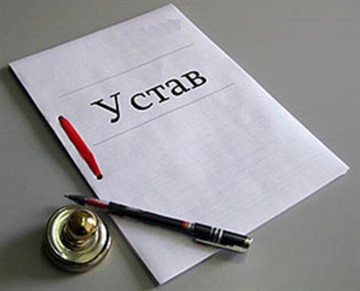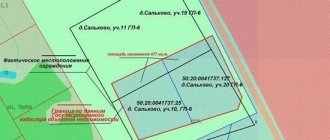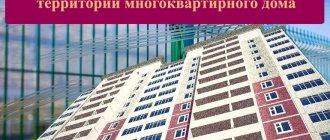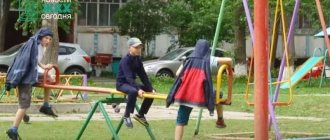TSN: concept, difference from the previously used legal form
Amendments made after the adoption of the concept of development of civil legislation in the Russian Federation determined a new organizational and legal form of legal entities - a partnership of real estate owners.
The norms of the Civil Code of the Russian Federation define the concept of a partnership of real estate owners (TSN) as an association of real estate owners organized on a voluntary basis for the purpose of exercising a triad of rights - use, ownership, disposal of property in common use and common ownership, as well as for solving other problems, not contradicting this legislation.
In other words, a partnership of real estate owners should be understood as a non-profit organization within which the owners of any, without exception, real estate unite, be it an apartment, a private house, a dacha, a garden, a garage, an office and others.
It is worth saying that previously there was an alternative option for owning common property - an HOA. It was an association of owners to exercise their rights in relation to joint property - a specific house.
This form of management organization had a number of differences from TSN:
- there was no legal opportunity for commercial real estate owners to unite in an HOA;
- a narrow range of responsibilities associated with maintaining the utilities of the house and managing its property;
- taxation was carried out according to a simplified system.
- HOA management bodies made competent decisions only with the consent of all or the majority of owners of common real estate;
- there was no need to license the organization’s activities.
The table makes it possible to understand the differences between the outdated and currently accepted forms of organizing the management of common property:
| Differences | HOA | TSN |
| Control object | Residential buildings only | Any real estate |
| Responsibilities | Management of common property, ensuring the operation of utility systems | The same as for HOAs + carrying out business activities in relation to common property objects and, if necessary, their additional construction |
| Tax system | simplified tax system | No permission for simplified tax system |
| Members | Individuals | Individuals, legal entities, as well as their associations |
| Licensing | Not necessary | Necessarily |
The legal status of a partnership of real estate owners has broader boundaries in that through this organizational form not only residents of one apartment building can unite, as is the case with an HOA, but also owners of entire courtyards with a common local area, as well as any other real estate. For TSN there are no specific restrictions in the list of assigned responsibilities and despite the non-profit legal nature, the organization can make a profit from such activities that will be intended to satisfy the interests of its members. This status of TSN opens up the opportunity to manage not only residential real estate, but also all others, within one organization.
Basic concepts of TSN
Basic information about TSN is contained in Article 123.12 of the Civil Code of the Russian Federation. In order to understand what TSN is, let’s consider the main features of TSN:
- This is a voluntary association.
- TSN includes only owners of real estate.
- TSN is created for certain purposes provided for by law.
- TSN includes owners of various real estate objects: owners of buildings, premises, owners of apartment buildings, owners of country houses and land plots, etc.
- TSN is created for the joint ownership and use of real estate owned by all members of the partnership.
If all the above conditions are met, an association of owners can be considered a TSN.
Legal basis for TSN activities
A non-profit organization in the form of a TSN has special legal capacity, that is, only those rights and obligations that are reflected in its main document - the charter.
Responsibilities of TSN
Along with the pre-existing HOA, the main document of the partnership of real estate owners must include similar legal frameworks for management - maintenance, operation and repair of the property, as well as those that were not included in the scope of the first - the construction of new joint real estate, its delivery to the arena. At the same time, the rental relations of TSN will be classified as the sphere of entrepreneurial activity that this organizational and legal form has the right to carry out, and the income received from this can be distributed at the discretion of the owners of the joint property.
TSN Charter
The information specified in the TSN charter must necessarily contain information about the name, location of the organization, legal status and composition of the management bodies of the partnership, the subject and purposes of such activities.
It is important to say that at the legislative level there are no clear requirements for such a document; it just must not contradict the norms of the Housing Code and the Civil Code of the Russian Federation.
Founders of TSN
Members, as well as founders of TSN, can be individuals who have the right of ownership of real estate, which is an object of public use, as well as legal entities to which the above-described property belongs by right of ownership, economic management, and operational management.
You can become a member of the organization through an application. It is necessary to indicate reliable and complete information about yourself, which will subsequently be entered into the appropriate register.
Monitoring and management of TSN
Participants in a partnership of real estate owners do not bear either shared, joint or subsidiary liability for its debts, since this legal entity has separate property with which it is able to answer for the obligations that have arisen.
Each TSN is assigned the responsibility to form control and management bodies that coordinate issues between members of the organization and third-party legal entities.
Control and management functions are carried out by:
- general meeting of property members;
- Chairman – sole executive body;
- the board is a collegial executive body;
- The audit commission is a body that monitors all activities of the management apparatus.
Examples of TSN Names
5.19. The owner of a premises in an apartment building, when acquiring ownership of a premises adjacent to the premises in an apartment building belonging to him by right of ownership, has the right to combine these premises into one premises in the manner prescribed by current legislation. The boundaries between adjacent premises may be changed or these premises may be divided into two or more premises without the consent of the owners of other premises if such a change or division does not entail a change in the boundaries of other premises, the boundaries and size of common property in an apartment building or a change shares in the right of common ownership of common property in this house.
3.4. The partnership may demand in court full compensation for losses caused to it as a result of the failure of the owners of premises in an apartment building to fulfill their obligations to pay mandatory payments and contributions and pay other general expenses.
Pros and cons of organizing TSN
Owners of real estate who decide to create a partnership of real estate owners receive some promising features and at the same time burden themselves with negative nuances that affect the outcome of events, which we will consider below.
Pros of TSN:
- the opportunity to generalize the management of all real estate under one leadership, which will allow for the most rational disposal and management of objects.
- full transparency of TSN activities, including financial ones;
- the main goal of TSN is property management, which implies the possibility of generating income from its use, which can be sold for general needs and thereby reduce the contributions of members of such an organization;
Cons of TSN:
- since the partnership of real estate owners is classified as a legal entity, the organization is declared insolvent (bankrupt), which means there are no guarantees for the return of previously paid funds;
- mandatory registration of a license for this type of activity;
- a partnership of real estate owners has wide boundaries of possibilities, which provokes situations in which the governing body can make decisions without taking into account the opinions of the members themselves - the owners of the real estate, and even one that can run counter to the wishes of the majority.
Homeowners' association and TSN - what is it, explanation
A homeowners' association or HOA is a non-profit association of individuals who own common property. Their goal is to manage this property, as well as conduct general business activities.
TSN is also an association of owners. Explanation of the abbreviation - partnership of real estate owners. Both individuals and legal entities who have any property (apartment, house, land, commercial real estate, etc.) can join TSN. The purpose of TSN is to exercise the powers of the owner in relation to single property within the framework provided by law.
The concept of “TSN” appeared relatively recently. It was introduced into legislation in 2014 and replaced the HOA. However, no adjustments have been made to housing legislation, so the HOA remains as a form of government.
TSN and HOA are non-profit organizations, membership of which is absolutely voluntary.
Legislative framework of TSN
Like any other organizational and legal form, a partnership of real estate owners is directly enshrined in the legislative framework of the Russian Federation, by referring to which you can understand the ways of creating, functioning and monitoring its activities. Below are specific regulations and relevant sections that reflect the essence of TSN.
| Normative act | TSN |
| Civil Code of the Russian Federation | Art. 49, 65.1-65.3, 123.12-123.14, 174, 181.2, 182, 218 |
| Housing Code of the Russian Federation | Art. 135, 136, 143, 145, 149, 150, 152, 161 |
Since the TSN design appeared relatively recently, it still raises many questions. It is worth noting that there is no special regulatory act dedicated to TCH, therefore, property owners who decide to transform into this type of partnership must rely on the general legislative framework.
Form of governance and charter
To register a Real Estate Owners Association, it is necessary to prepare the Charter. This is the founding document of an organization that governs its activities. It should be drawn up taking into account the norms of the current editions of the Housing and Civil Codes of Russia.

The Charter must contain the following information:
- name and type of organization;
- location address;
- subject, tasks and goals of activity;
- organization structure;
- competencies of the partnership;
- procedure for resolving issues, etc.
The TSN Charter is adopted at a general meeting of all real estate owners by a majority vote (in accordance with the second part of Article No. 135 of the Housing Code).
The decision can also be made by absentee survey of apartment owners. There are samples of TSN Charters on the Internet. They can be used as a basis for creating a document.
To register a Real Estate Owners Association, you must develop your own Charter. If you can’t do this yourself, then you should seek help from a specialist.
How to create a real estate owners' association: step-by-step instructions
Creating a TSN is a painstaking and multi-stage procedure. In order not to get confused in all the subtleties, to stay within the legislative framework, and to establish the limits and scope of powers as accurately as possible, you must follow the step-by-step instructions with a description of the procedure and a list of accompanying documents.
You can register TSN using the following algorithm:
- Creation of an initiative group (unification of individuals or legal entities into a coalition with an interest in TSN).
- Conducting the first meeting of real estate owners in person to resolve issues on the creation of TSN, appointment of authorized persons, approval of the charter with the obligatory reflection of the entire procedure in the minutes (considered to have taken place if the number of those present was at least 50% of the total number of owners). Stages: Determination of persons whose competence will include functions to ensure the operation of TSN:
- chairman;
- governing body;
- secretary;
- auditor or control commission.
- Establishing the size of the membership fee, the rights and responsibilities of executive bodies.
- Determination of the name, legal address (specific apartment, office or house as a whole) and the purpose of existence of TSN.
- final version of the charter in two copies;
How to create it correctly in an apartment building?
The creation of TSN is regulated by the Housing Code of the Russian Federation. In particular, we are talking about article No. 136 of this regulatory act. Its provisions must be strictly adhered to so that the creation of a Real Estate Owners Association takes place quickly and without any difficulties.
It is recommended to follow this algorithm:
- coordination of such a form of property management with all property owners. The decision is made at a general house meeting by voting. Only one TSN can be created in an MKD;
- preparation of minutes of the general meeting. The document is signed by all those who voted;
- development and approval of the Charter;
- election of TSN managers;
- preparation of a package of documents. It includes minutes of the general meeting of property owners, the applicant’s passport, the Charter, an application;
- payment of state duty;
- state registration of a real estate owners' association. Conducted at the tax office located in the area where the object is located;
- opening a bank account. It will receive financial resources from membership fees, etc.;
- notification of the local administration, Housing Inspectorate about the start of TSN activities;
- obtaining a license to manage an apartment building and other buildings.
Expert opinion
Maria Lokshina
Family law expert since 2010
TSN is not responsible for the obligations of its members, who in turn are not responsible for the legal relations of the association. Such a partnership can be transformed into a consumer cooperative by decision of the owners.
Alternative to TSN: practical analysis
The need to form an association and subsequent management of joint property most often arises in relation to residential space, since this area is the most extensive, and its owners are always interested in creating the best conditions for themselves.
Thus, according to the Housing Code of the Russian Federation, management in an apartment building can be carried out:
- directly, through the personal efforts of the owners of such apartments, provided that the total number of rooms in the house is no more than sixteen;
- association into a HOA, housing cooperative or other consumer cooperative with special legal capacity;
- management through a management company.
At the same time, it is worth noting that HOAs and housing cooperatives are subtypes of real estate owners' partnerships and are subject to all legal requirements applicable to TSN.
From the above, it becomes objectively clear that managing the affairs of an apartment building on your own is a very unstable structure, since it often becomes difficult to organize a general council, collect contributions to solve a common problem, many lose initiative and do not have a competent approach.
Management with the help of a third-party organization - a management company - causes a lot of dissatisfaction, due to the fact that abuses on the part of such a company occur everywhere, requests from owners are ignored, the results of general meetings are falsified, tariffs are unreasonably inflated, fraud and waste of money from owners occurs.
However, this can be prevented through TSN, which is a good help, an effective and highly competitive organizational and legal form.
Examples of TSN Names
It was decided: To elect Igor Viktorovich Zhivalev as the chairman of the general meeting, Galina Nikolaevna Sozinova as the secretary of the meeting, Svetlana Nikolaevna Gretsova as a member of the counting commission, Alexey Anatolyevich Petukhov Comment: the order of the meeting was violated: first the chairman, secretary and counting commission are elected, and then the agenda items are considered of the day - On the fourth item on the agenda - To elect the board of TSN Energia:
Owners of land plots took part in the voting on the agenda items, sending 69 ballots to the initiative group, of which 65 ballots are valid, which in total corresponds to 793 votes (58%). The total area of land is 136,384 sq.m. (1,364 votes). The required number of votes to make a decision must be more than 50% of the votes of all owners. The votes were counted in accordance with clause 3 of Art. 48 Housing Code of the Russian Federation. According to clause 3 of Article 146 and Article 45 of the Housing Code of the Russian Federation, there is a quorum. The meeting is valid. COMMENT It is not clear where the total area of land was taken from. The number of land owners is not clear. The agenda for the meeting has not been announced. Although in the Housing Code of the Russian Federation this kind of meeting is held to CHOICE A MANAGEMENT METHOD.
Rights and obligations
The legal capacity of a real estate owners' association is enshrined in the main document - the organization's charter.
This form of legal the person has specific, separate property, which, if necessary, will be used to meet the obligations assumed.
So the participants are not responsible for the actions of the organization :
- Neither subsidiary.
- Not in solidarity.
- Not a share.
The partnership assumes responsibility for the formation of supervisory and management bodies created to coordinate and make decisions by its members and other legal entities (for example, to carry out construction work or connect to the housing and communal services network). The main governing body of the association must make decisions on establishing mandatory contributions for members of the organization.
TSN can carry out entrepreneurial activities and receive income from it (according to the Civil Code of the Russian Federation), but under two conditions:
- This activity must meet the goals of the association (as enshrined in the charter).
- Profits cannot be distributed among members of the organization.
All actions of the organization must correspond to its goals and objectives. The association has the following rights :
- Conclude agreements that satisfy the needs and interests of its members: defining the management of the organization’s common property, the provision of housing and communal services, etc.
- Indicate the organization's income and expenses for the year by drawing up an estimate. On its basis, a plan of contributions and payments will be drawn up, calculated for each owner (taking into account his share in the right of common ownership of the property).
- Determine the transfer and receipt of funds by persons who perform work and provide services for TSN.
- Conclude a contract for the purchase and sale of real estate (in shared ownership), as well as lease (limited or full use of part of the common property) or exchange of partnership property.
- Carry out work and provide services to property owners.
- Receive and use loans from banks.
If the participants do not fulfill their obligations as set out in the charter or the decision of the meeting, the partnership may try in court to force them to fulfill their obligations, make payments or contributions. Also, the organization, in court, can demand from violators compensation for losses caused due to failure of members to fulfill their obligations.
TNS is obliged :
- Conduct its activities within the framework of the norms established by law, as well as in accordance with its charter.
- Conclude contracts with third parties to perform specific work.
- Fulfill your obligations and monitor the sanitary and technical condition of common property.
The owner becomes a member of TSN after he submits an application for membership there. You can leave the partnership by filing an application for withdrawal from it.
Its members have the right :
- Request TSN for information about its activities.
- Participate in the activities of the association independently or by sending a proxy there (select and become a candidate for management positions, make proposals regarding improving the quality of work).
- If they do not agree with the decision of the governing bodies, they can appeal it in court.
- Familiarize yourself with the main documents of the organization.
- Demand from TSN the proper quality of services and work that they are obliged to carry out in accordance with the charter.
Sample charter of tsn for snt
- from the outside, from streets and driveways, plots must have fencing made of metal mesh, picket fence or solid fence no more than 2 meters high, and along the border between neighboring plots - only from mesh or picket fence that meet aesthetic requirements and do not obscure neighboring ones plots
Common use property (including the land plots on which it is located) is not the main property, because it was created and intended to serve individual garden plots of land (main property), and is connected with the latter for a general purpose and, according to Article 135 of the Civil Code of the Russian Federation, follows the fate of the main property. Consequently, all public property (including land plots under it), regardless of the type of ownership of it, cannot be sold, mortgaged, leased, etc. without all individual garden plots located on the territory of SNT, except during the liquidation of SNT.
30 Jun 2021 hiurist 335
Share this post
- Related Posts
- Bailiffs Inventory of Property Rent
- How to calculate the footage of a balcony 266 sqm
- Perm Region Housing Certificate for Chernobyl victims
- What is the Pension Increase After 100 Years?
From HOA to TSN: a play on words or a real necessity
For example, Law of the Russian Federation dated December 24, 1992 No. 4218-1 “On the fundamentals of federal housing policy” defines a condominium as a partnership of owners of residential premises in apartment buildings with the establishment of conditions for joint ownership and use of inter-apartment staircases, elevators, corridors, roofs, technical basements, non-apartment engineering equipment, local area and other common areas. From this definition the following follows: a condominium is a legal entity whose purpose is to operate the common areas of an apartment building. The concepts of condominium and homeowners' association are confused. The same confusion of concepts was preserved in the “Temporary Regulations on Condominiums”, approved by Decree of the President of the Russian Federation of December 23, 1993 No. 2275 (repealed as of October 19, 1996). As a result, in practice, both HOAs and Condominiums were registered, and the difference was only in name, but not in essence.
Federal Law No. 133-FZ dated May 23, 2021 “On Amendments to Part One of the Civil Code of the Russian Federation and the Federal Law “On Political Parties” amended paragraph. 1 clause 1 art. 54 Civil Code of the Russian Federation. The tax authorities interpret the changes as follows: since the HOA is a type of such organizational and legal form as TSN, then from May 23, 2021 (the date of entry into force of the law), when registering the HOA, we indicate the HOA in the name, and in the charter it is necessary to indicate that the HOA is created in organizational and legal form - TSN. That is, the charter contains the words HOA everywhere, but one of the clauses of the charter indicates that the HOA is a type of organizational and legal form of TSN.
OFFICE PROCESS ->
5.10. Non-use by a member of the Partnership of real estate belonging to him or refusal to use common property is not grounds for releasing the homeowner in whole or in part from participating in the general costs of maintaining and repairing common property.
— The notice of a general meeting of members of the Partnership shall indicate information about the person on whose initiative the general meeting is convened, the place and time of the meeting, and the agenda of the general meeting. The general meeting of members of the Partnership does not have the right to bring up for discussion issues that were not included in the agenda.
Interesting: Can bailiffs describe the donated property?









